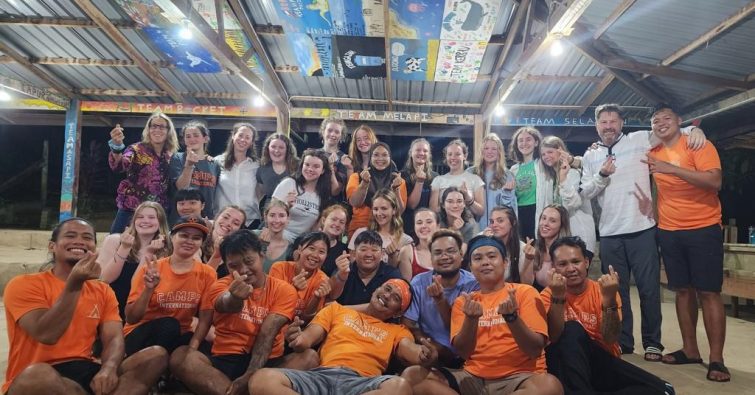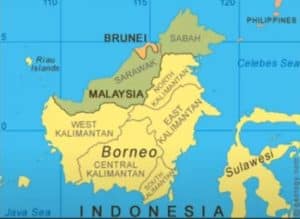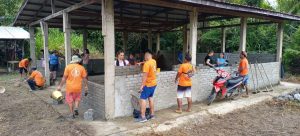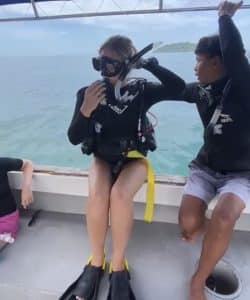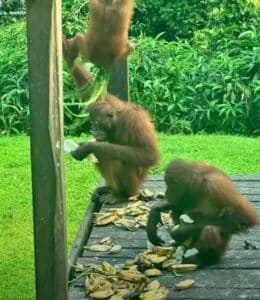A look back at the amazing four week trip to Borneo with Camps International that twenty of our students went on in July, accompanied by staff members Mrs Fassnidge and Mrs Stafford.
The students from Years 9-13 had spent more than a year fundraising for this. They stayed in five sites and took part in various community projects as well as learning about the local ecology and going scuba diving and snorkelling. The group gave a presentation to the School in a recent assembly, and here are some edited highlights:
“Borneo is the third largest island in the world. It is split into three parts: the southern Indonesian part, Brunei in the middle, and the northern Malaysian part. It has the world’s oldest forest and is home to many species of animals and plants that we were able to see in the wild.
Our expedition was in Sabah, where there are 42 ethnic groups and over 80 dialects. The most common language was Malay. Did you know that ‘Orangutan’ is Malay for ‘Man of the Jungle’?
Our first camp was Camp Tinangol, where we were welcomed by Camp Leader Fika and her team and given a welcome dance.
We slept in traditional bamboo longhouses and played lots of volleyball and Uno in our free time.
We hiked to our project sites, where we worked on building a community centre and installing a drainage system for the village.
Next, we spent four days on Mamutik Island scuba diving, snorkelling and learning about coral reef preservation. On our dives, we were able to see turtles, seahorses, angelfish and much more marine life.
At Batu Puteh, on the Kinabatangan River, we were taken on safari boats to a camp in the jungle. From the boats, we saw crocodiles, monitor lizards, monkeys, and always kept an eye out for orangutans. Our projects work was reforestation – using machetes to clear invasive species, and planting saplings to restore and revitalize the jungle habitats.
We stayed 2 nights in hammocks, but no-one got much sleep! In the night, we heard insects, frogs, monkeys and an unidentified growling animal (we think it was a leopard). There were some close encounters with centipedes, spiders and fire ants, and we were surrounded by mosquitos day and night.
At Sepilok, we were able to see young orangutans that had lost their mothers getting used to life in the wild.
They came out of the trees for feeding time to play and relax before they were joined by scavenging monkeys.
We also visited the sun bear rehabilitation centre where the world’s smallest bears were growing until they could be released back into the wild.
At Camp Bongkud, we learnt to make local banana cake, performed a traditional bamboo dance, and helped prepare meals for the camp. Our project work was mixing cement for drainage, laying slabs for the path up Bungkud Hill, making furniture for the local school, painting village buildings, and teaching English to local kids.
Our last stop was Rangbulan bay, where we worked on building a playground for the local school, and we were given sarongs by the school children. We learnt to cook bread on a stick, catch fish, and had a campfire singalong as well as karaoke on our last night.”
Back to all news

